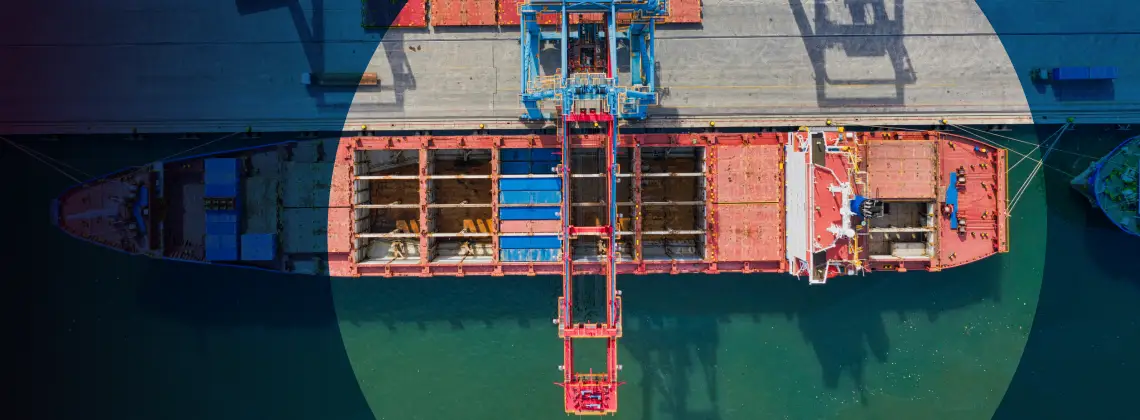News analysis
Tariffs are a core risk now: treat them as such

Tariffs are a core risk; your corporate strategy needs to reflect that because, at least for now, predictability is out the window.
It seems like every few weeks, we're back to talking about tariffs – in the news, in business dealings, around the management table and in the boardroom. As usual, the uncertainty begins at the White House, where Donald Trump's eager ambitions to reshape global trade send fear into the hearts of leaders of other major world economies.
Some of these lawmakers have openly claimed that Trump's latest threats to hike tariffs would completely (and negatively) overhaul the current order of intercontinental trade.
It's difficult for business leaders in this kind of scenario. Aside from occasional collective industry lobbying, which may or may not be listened to, all they can do is sit and wait for new rules to take shape… or not take shape; it's a little hard to tell right now.
But that's the reality that business leaders need to get used to and, more importantly, it's something they can act on now as they work with colleagues to rejig corporate strategy and ensure the business keeps going.
The new normal
Since Donald Trump took office, things have flip-flopped constantly. The outlook has been pessimistic in moments like "liberation day" in early April, or this latest round of threats, specifically targeting places like Canada, Brazil, Japan and the EU with rates as high as 30%, even up to 50%.
Tariffs aren't new. Businesses have built them into their strategy for decades up till now. What's new is the chaos and uncertainty. We simply don't know what will happen next or when. What looks like a done deal one week will turn into retaliation and escalation the next.
If you're a European business leader with ties to the US market, you've probably felt that pain. You saw the uncertainty begin on "liberation day", then relax a little as negotiators seemed to make progress; now the panic has come back as Trump suddenly threatens 30%, and the European Commission vows to retaliate if necessary.
We have entered an era where the presence of tariffs is far eclipsed by the fog of their unpredictability. You're now trying to score in a goal that constantly moves, shrinking or growing depending on how short-term global spats play out.
Whether you're a fan of Donald Trump's global trade policies or a critic, maybe even a believer in the TACO (Trump always chickens out) mindset, the conclusion is the same: instability is the new constant.
As a business leader, you need to treat it as such.
Tariffs are a core risk
Tariffs used to be just a matter for compliance teams. Not anymore. The unpredictability around them needs to be embedded in your risk management and strategic planning.
It's like any other big company commitment – treating it as a side project, allocating it temporary resources, just won't cut it. Boards and executive teams must confront this head-on, giving the company wiggle room to match the uncertainty. The cost of production and import/exports needs examining, as do supply chains and whether they can be changed.
Remember, it's not just the tariffs themselves that can damage your bottom line; it's the markets' reaction to them too. Amid the uncertainty, different stakeholders will gravitate to various outcomes, and such volatility can also disrupt normal business if you're not prepared.
Build the right bench
If your board or executive team lacks hands-on expertise in navigating trade shocks, now's the time to fix that. Whether it's hiring experienced professionals or tapping independent advisors with trade policy backgrounds, find what you need and fast. Use your network, upskill trusted personnel within your ranks. This knowledge is no longer a "nice-to-have". It's a core capability. Governance frameworks must evolve to keep pace with today's risks.
Time to rethink the rulebook
You might have thought Tariffs would bring uncertainty when Trump took office, then settle down. We're still only early into his presidency, and, ultimately, that still may be the case. But his examples so far have told us that "certainty" is way too big a word for this new normal.
No matter how confident the media might be in a trade deal, there's always room for pushback and more chaos. You need to be ready to make a profit, even as things escalate and de-escalate around you. When the same cycle recurs in a few months, you need to be ready for that too.
Insights on leadership
Want more insights like this? Sign up for our newsletter and receive weekly insights into the vibrant worlds of corporate governance and business leadership. Stay relevant. Keep informed.



